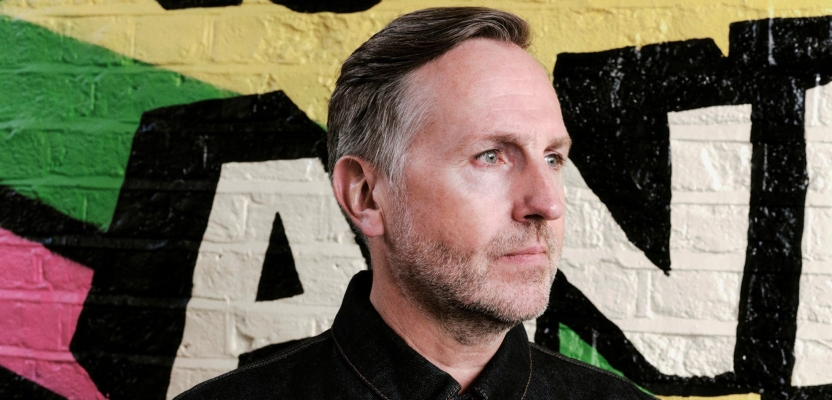Tell us a bit about your role! Is there a “typical” day?
I haven’t been at Monotype long enough yet to form an exact idea of what a ‘typical’ day is. So far, I’ve been undertaking a very well-structured and in-depth onboarding programme to get as many insights into this fascinating business as I can.
With my role being new to Monotype, it’s important I meet with as many people as possible, across the entire business to raise awareness of the potential of our in-house creative team.
What was the biggest challenge in getting to your current position?
The most obvious challenge along the way was the change of mindset transitioning from Designer to Creative Director. In the run up to becoming Creative Director, I’d had plenty of experience running teams on a project basis, but having the responsibility of a whole creative floor is a whole new ballgame.
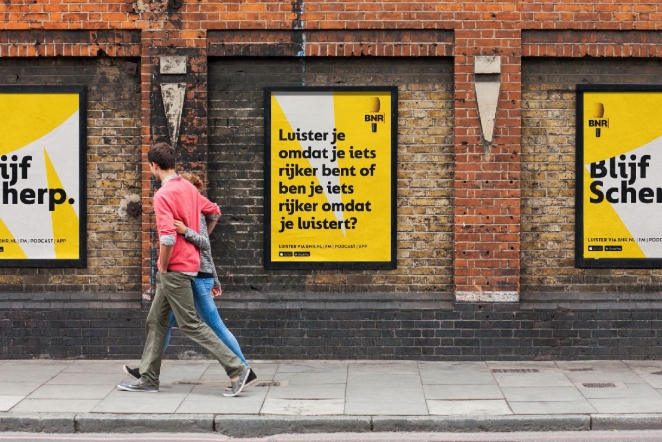
I also encountered some initial difficulties adjusting to being more hands-off. Up to the point of becoming Creative Director, I’d always been very hands-on and adored crafting work. Understanding, as a Creative Director, how rewarding leading and steering a team can be, was something I discovered a little later.
What is your personal background and what role did it play in your career?
I’ve had a genuine love of typography since I undertook a work experience opportunity at my uncle’s typesetting business in Islington when I was just 15. During my time there, I eagerly absorbed everything, from the formal discipline of working with type through to the countless expressive personalities that different typefaces offer.
It’s fair to say I was pretty much hooked on type from that very moment, and I still treasure the Linotype catalogue they gave me as a souvenir on completing my internship! While my career path to date has led me to hold senior roles at a number of leading international design agencies, my focus has consistently revolved around creating innovative and impactful solutions driven by typography.
Along the way, I've had the privilege of applying this approach with esteemed brands such as Yo! Sushi, Lucky Strike, The Heineken Company, PostNL, ING Bank, Johan Cruijff ArenA, Amsteldok, Pride Amsterdam and Canal+. It has also gifted me the opportunity to collaborate closely with many incredibly talented type designers and foundries. Typography has essentially provided a red thread throughout my career to date, so there is a certain kind of serendipity in that I now find myself at Monotype.
What is your biggest career-related win? What is your biggest loss?
Over the course of many years in this industry there have been many highlights. I consider myself incredibly fortunate in that respect! Personally, I’d say one of the biggest wins to date, has been to be given the opportunity of becoming a Creative Director in the first place. It’s really helped me to realise my full potential as a creative, which in turn has resulted in working directly with numerous incredible designers on many outstanding projects.
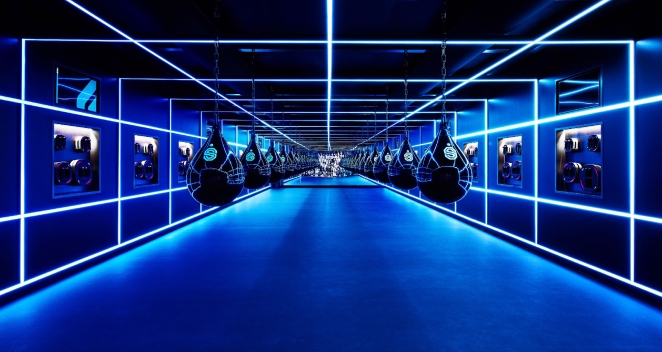
That said, being a Creative Director is not all accolades and adulation. It can be incredibly tough at times and definitely not for the faint-hearted. In a role that demands a great deal of people management, politics and diplomacy, I’d say the biggest loss is the distance that can develop between yourself and your colleagues.
Which individuals and/or agencies do you gain inspiration from? Do you have any heroes in the industry?
Around 2015 I came up with an idea to interview many of the legendary Dutch designers whose work inspired me to follow my love for Dutch Design and relocate from London to Amsterdam. Over the course of the past few years, I was fortunate enough to interview Wim Crouwel, Ben Bos, Jan van Toorn, Gerard Hadders, Gert Dumbar, Irma Boom, and Paul Mijksenaar.
They were all amazing in their own way and I feel really privileged to have been able to capture their inspirational stories as a series of creative conversations called ‘Dutch Design Heroes’. You can read some of these interviews here.
If you could go back to your teenage years, would you have done things differently?
Aged 14 I won a competition to design the logo of my new school. The prize was a £10 book voucher, upon reflection it was probably more than I deserved.
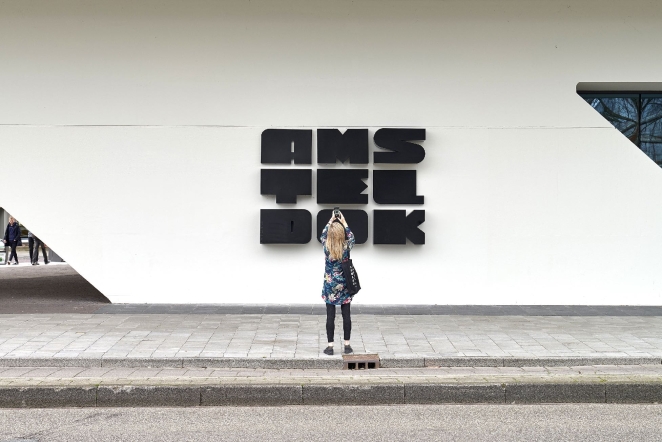
I’d certainly do things differently with it now. But more importantly though, it sparked a curiosity in me to follow a career in design for which I’m forever grateful.
If you weren’t in your current industry, what would you be doing?
As a child, I really wanted to be a Marine Biologist. Blame Jacques Cousteau for that. I was mesmerised by his documentaries on TV. As an adult, though, I have a deep-seated fear of sharks. I think I chose my career path well!
What’s your one big dream for the future of the industry?
Whilst technology and innovation may continue to dominate the industry moving forward, there will always be central role for humans to drive ideas-based creativity.
What are your top tips for aspiring creative professionals?
With increasingly greater competition and fewer opportunities within the industry, I would suggest the following:
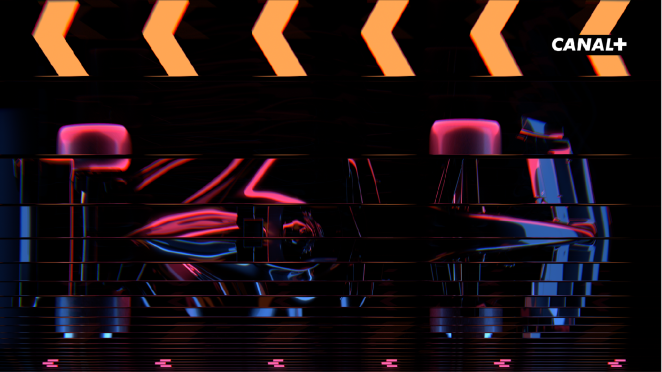
Be humble — Even if you think you know it all already, you really don’t… yet.
Be grateful — See any opportunity as a step up the ladder. Make the most of it and use the experience to further your career.
Work hard — It pays off and gets you recognised more quickly. Working in a collaborative way as part of a team can be one of the most rewarding ways to achieve this. You also get the bonus of learning hands-on from others with more experience than yourself and to share your own ideas with them.
Give something back — I firmly believe I got to where I am today mainly because a number of key people invested their own time in me along my career path. They acted as my mentors, sharing their experience with me and guiding me when I needed it.
A well-crafted execution WITH a strong idea every time — Never overlook the importance of an underlying idea in your work. Craft skills and technique can be learnt along the way. It’s the power of a strong idea which will make your work stand out not how slickly it’s executed. Always.
And finally, be interested in people — working in the design industry is seldom an isolated experience. You may often be working as part of a team, giving feedback, meeting clients, giving presentations, talks and even networking.
All these demand differing levels of communication, interpersonal and social skills. As you mature in the industry you will notice that you need to sharpen these as much as your design skills to function at a higher level.
What are your top tips for other creative leaders?
Read the interview series I initiated called CD101. Becoming a creative leader is viewed by many as a ‘dream job’.
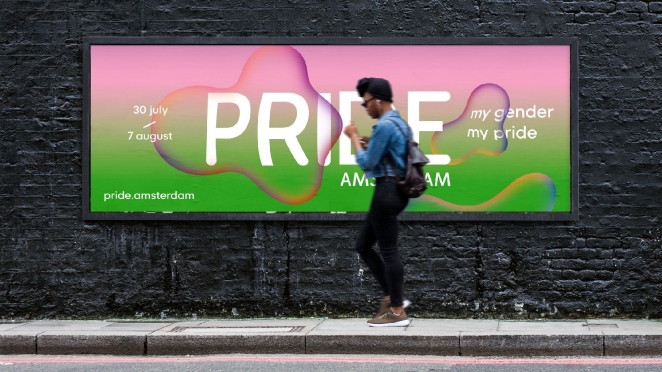
The truth is, only a select few achieve this accolade, and many find the transition challenging. In the series 20 leading Creative Directors share their experience and tips on how to make it.
When you think about your team, what is the thing that matters to you the most?
Ultimately, I try to treat everyone I work with, in the way I expect to be treated myself. That means being respectful, inspiring, fair, kind and open always. By maintaining this, in my experience, you create a healthy creative culture in which everyone can thrive.

